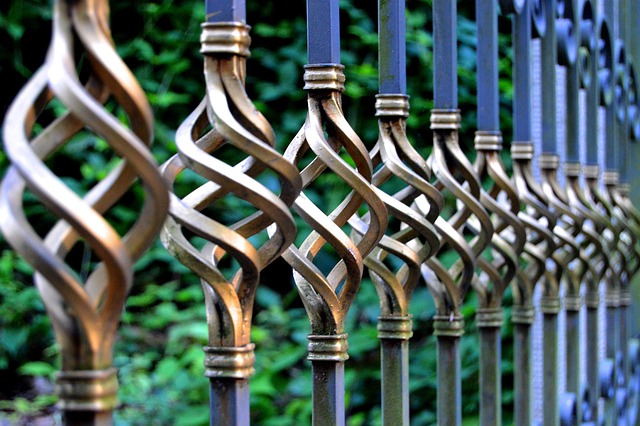Vinyl Fence Installation: A Comprehensive Guide for New Bedford Residents
Are you considering enhancing your property with a stylish and durable vinyl fence in New Bedford, MA? This guide will lead you through the entire process, from understanding the installation techniques to selecting the perfect contractor. We’ll explore the various types of vinyl fences, their benefits, and how to ensure compliance with local regulations. Additionally, we provide insights into cost estimates and maintenance tips to guarantee your new fence stands the test of time. Whether you’re a homeowner or property manager, this article offers valuable insights for a successful vinyl fence installation.
- Understanding Vinyl Fence Installation Process
- Choosing the Right Contractor for Your Project
- Permits and Regulations in New Bedford, MA
- Types of Vinyl Fences and Their Benefits
- Estimating Installation Costs
- Maintenance Tips for Long-Lasting Vinyl Fencing
Understanding Vinyl Fence Installation Process
When considering vinyl fence installation, understanding the process is key. It begins with a consultation where contractors assess your property and discuss design options, taking into account factors like space constraints, desired aesthetics, and budget. From there, precise measurements are taken to ensure accurate material cutting and fitting.
The actual installation involves setting posts at strategic locations, attaching vertical boards to these posts, and installing horizontal rails for added support. The use of high-quality vinyl ensures durability against the elements, while skilled contractors employ techniques that align panels seamlessly, enhancing both functionality and visual appeal.
Choosing the Right Contractor for Your Project
When choosing a vinyl fence installation contractor in New Bedford, MA, it’s crucial to start by evaluating their experience and expertise. Look for companies that specialize in vinyl fencing and have a proven track record in your area. Reputable contractors should be able to provide references from previous clients and showcase examples of their work. This ensures you get high-quality craftsmanship and a fence that aligns with your expectations.
Additionally, consider the contractor’s reputation and customer service. Check online reviews, talk to neighbors who have recently installed fences, and ensure the company offers competitive pricing along with warranties or guarantees. A good contractor will communicate openly, provide detailed estimates, and be available throughout the installation process to address any concerns or make adjustments as needed.
Permits and Regulations in New Bedford, MA
In New Bedford, MA, like many municipalities, the installation of a vinyl fence involves adhering to specific permits and regulations. Before starting any construction project, including fencing, homeowners or contractors must obtain the necessary permits from the local building department. These permits ensure that all work complies with building codes and safety standards. Failure to obtain the appropriate permits can result in fines and project delays.
Additionally, New Bedford may have zoning regulations that affect fence installation, particularly in residential areas. These rules are designed to maintain a harmonious and aesthetically pleasing neighborhood environment. Understanding these regulations is crucial for ensuring your vinyl fence installation meets all legal requirements and avoids any potential conflicts with neighbors or local authorities.
Types of Vinyl Fences and Their Benefits
Vinyl fences come in various styles, each offering unique benefits for different preferences and needs. One popular choice is the traditional picket fence, characterized by tall, slender boards creating a clean, classic look. This design adds a touch of elegance to any property while providing privacy and security. Another option is the more modern, sleek panel fence, which consists of solid panels that offer maximum privacy and are low-maintenance. These panels come in various colors and textures, allowing for customization to match your home’s exterior.
The benefits of vinyl fences extend beyond aesthetics. They are highly durable, resistant to rot, rust, and pest damage, ensuring longevity with minimal maintenance. Vinyl is also an affordable option compared to other materials like wood or iron, making it an attractive choice for budget-conscious homeowners. Moreover, these fences are versatile, suitable for various applications, from backyard enclosures to commercial properties, offering both functionality and style.
Estimating Installation Costs
When considering vinyl fence installation, one of the primary concerns is the cost. The price can vary widely based on several factors, including the size and complexity of your fence project, the type of vinyl used, labor rates in your area, and additional costs for permits or inspections. On average, you can expect to pay between $15 and $40 per linear foot for materials, with labor costing roughly $30 to $60 per hour.
For a standard 100-foot fence, this could range from $2,500 to $8,000 or more. It’s important to obtain quotes from multiple contractors and ask about any potential extra fees to ensure you have an accurate understanding of the installation costs before starting your project.
Maintenance Tips for Long-Lasting Vinyl Fencing
Regular cleaning is essential to maintain the sleek appearance of vinyl fencing. A soft brush and mild detergent are usually enough to remove dirt, stains, or leaves that accumulate over time. Avoid using harsh chemicals as they can damage the fence’s surface. Additionally, keeping an eye out for any loose or damaged panels is crucial. Repairs should be addressed promptly to prevent further deterioration.
To ensure longevity, inspect your vinyl fence annually for signs of wear and tear. Tighten any loose fittings and replace broken parts to maintain structural integrity. Regular maintenance not only preserves the aesthetic appeal but also adds value to your property.
